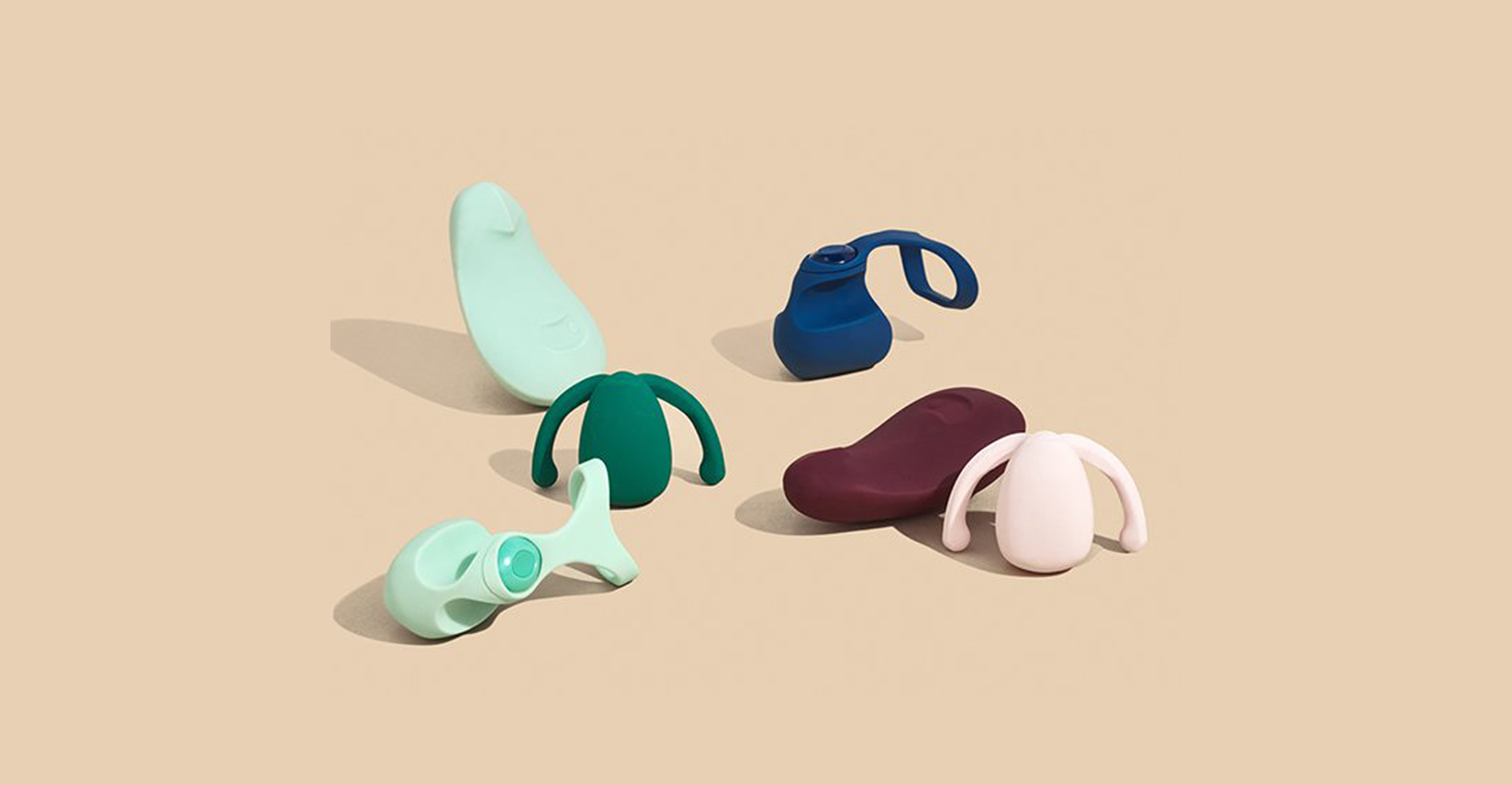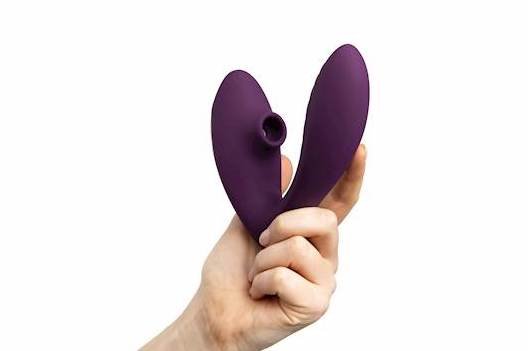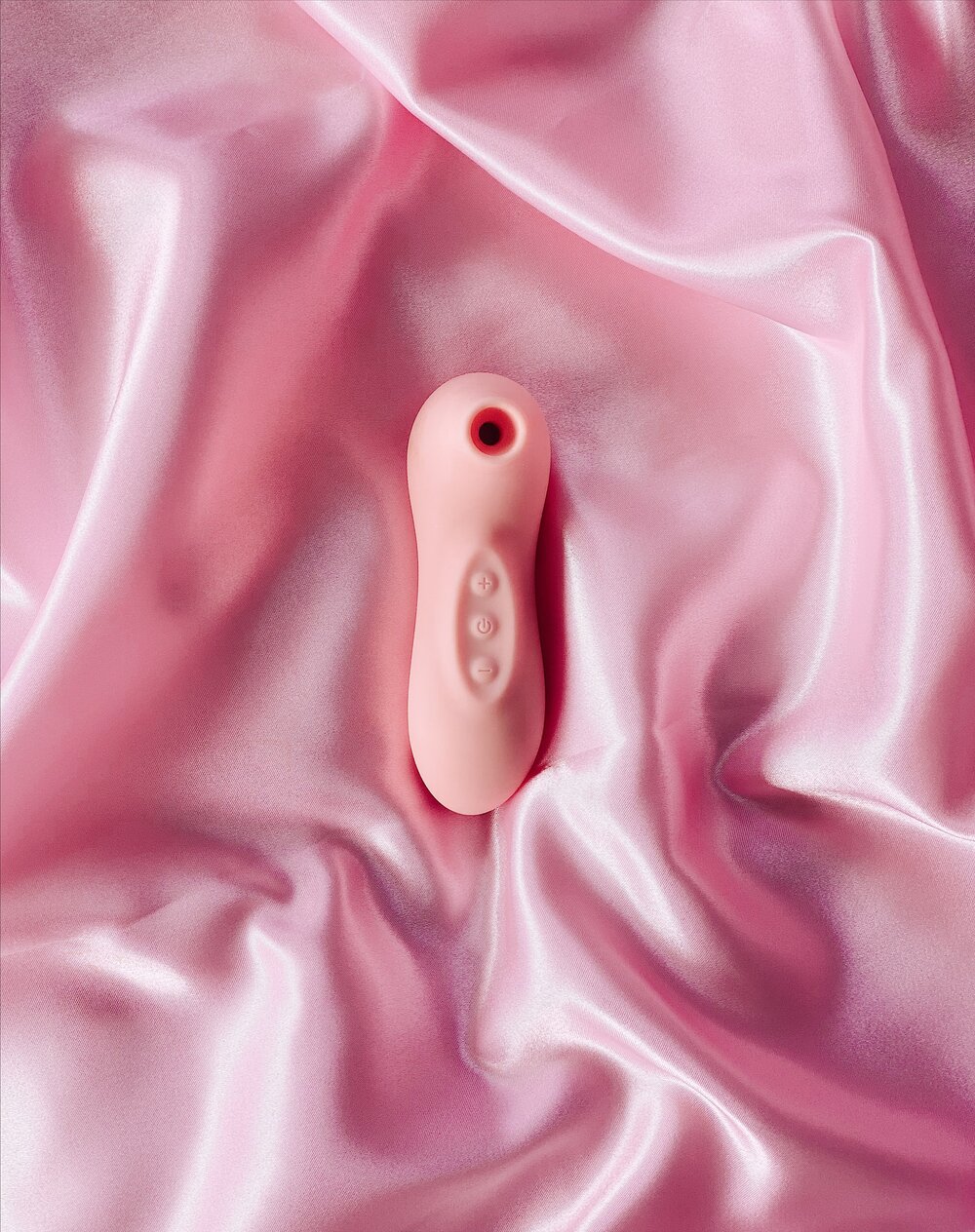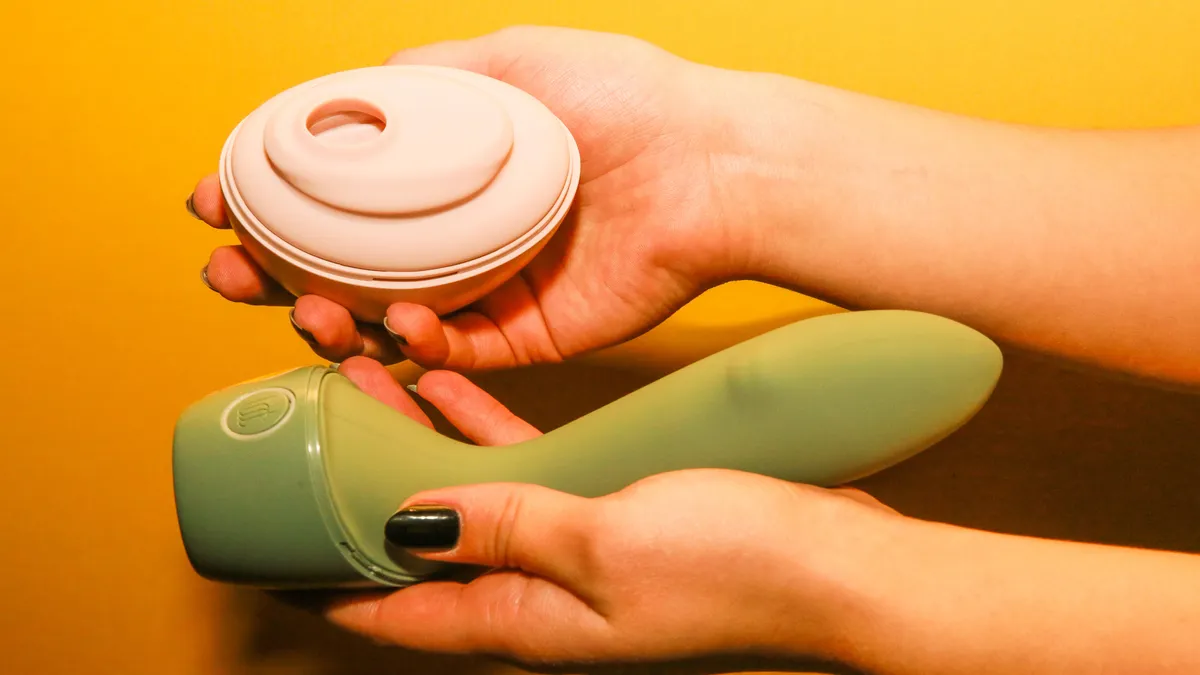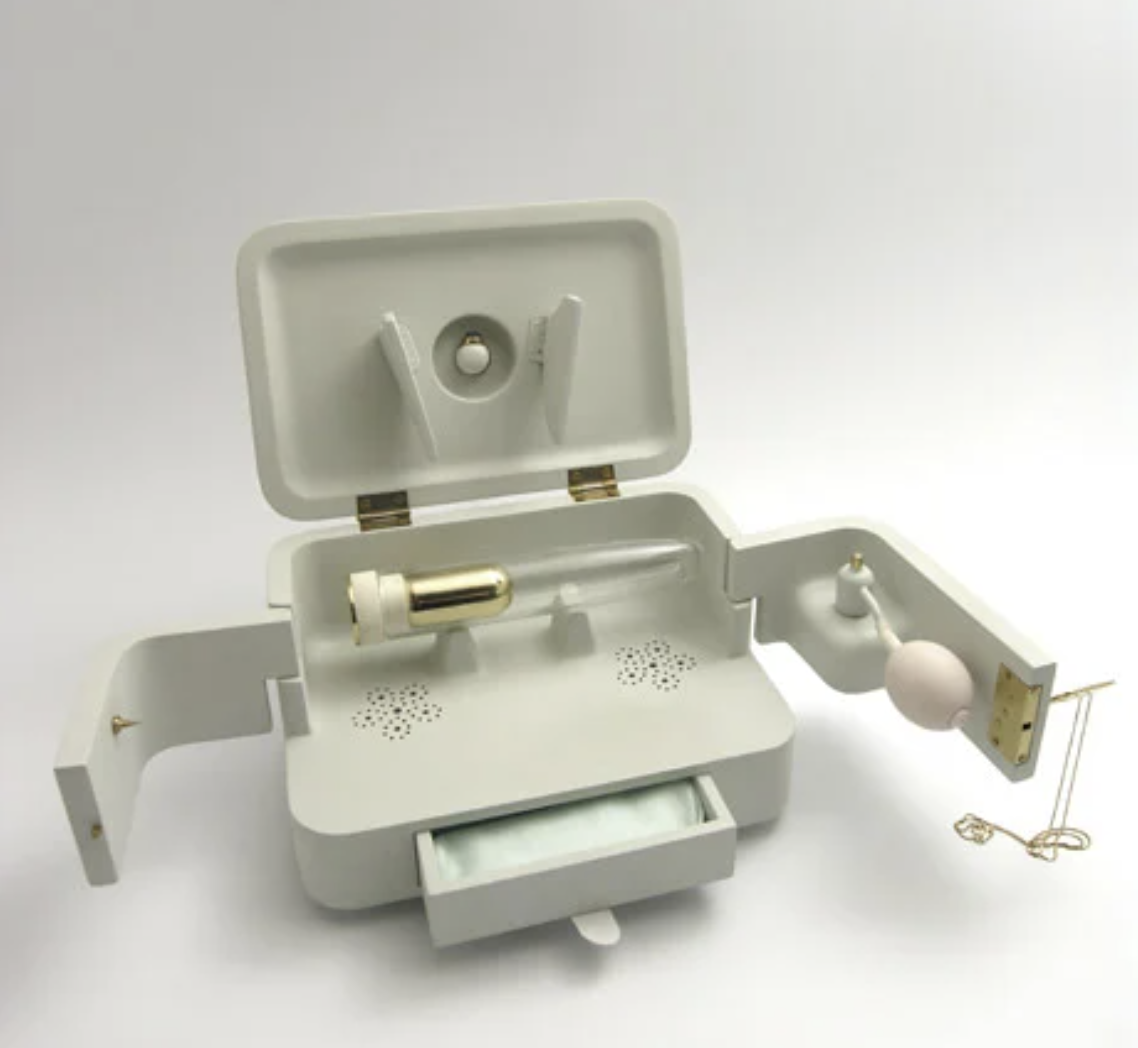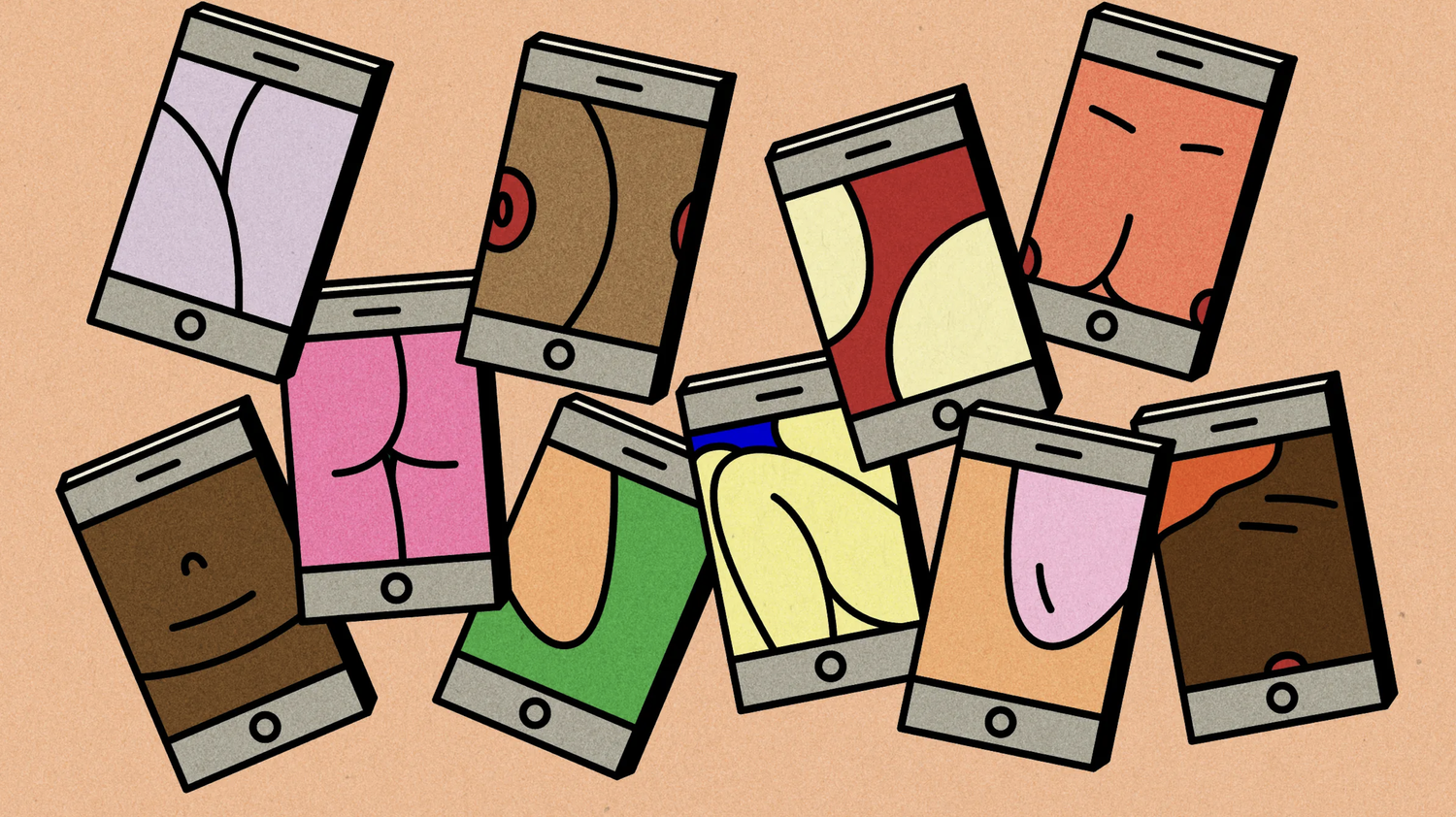
Technology – a help or hindrance to sex and connection
Online dating statistics show that 20% of those in current, committed relationships in the US began with dating apps. Phone scrolling and Netflix binging are now commonplace in relationship downtime, and sextech trends are skyrocketing, showing 30% growth year on year. It's undeniable in 2022, that technology in relationships is ubiquitous. But is it helping or hindering the ways that couples communicate and connect?
We asked Somatic Sexologist and Sex Coach Alice Child, and Lovehoney Ambassador Ambassador and Sex Coach Cam Fraser, how they view the place of technology in the wider landscape of connection and intimacy.
The downside ofof technology and connection
From the dinner table to the bedroom, technology is present in relationships now more than ever. A recent study by Utah State University found that than one-third of adults use technology in their bed every night or almost every night and 59% of people believe that their spouse or partner is on their phone too much. Evidently, the rise of technology is proving a challenging factor for couples in connected with one another.
Smartphone dependency is associated with less affectionate communication. Similarly, excessive screen time can have a negative impact on a couple’s communication. This is because technology can interfere with or interrupt conversations, activities, and time with romantic partners” explains Lovehoney Ambassador and Sex Coach Cam Fraser.
But it’s not just relational connection that’s showing signs of fatigue, it’s our inherent disconnection to ourselves and our bodies that’s leading to desensitisation.
The rise of [technology] has meant that many of us are stuck in our mental world, instead of being able to listen to our bodies. There is an inherent disconnect between what the body is experiencing and our ability to notice and feel it” says Sydney-based Somatic Sexologist and Sex Coach, Alice Child.

While the accessibility online dating apps, mainstream porn and vibrators can be useful tools when it comes to sex and communication, Alice suggests that these things can also inhibit couples’ intimacy.
Your body and nervous system can become reliant on specific types of stimulation, meaning over time some people find it harder – not easier – to connect sexually with their partners or themselves without it.”
The growth ofof Sextech and human connection
On the flipside, some emerging technology, particularly in the sextech space, is making positive and helping couples to reconnect once again. Technology has been helping to keep couples connected for decades, but since the emergence of Covid-19, its place is cemented as a necessity in relationships. “Technology was a connector, refuge, and even lifeline for most of us during the pandemic,” Michelle Drouin, PhD, psychology professor at Purdue University, writes in her book Out of Touch: How to Survive an Intimacy Famine.
For couples, Sex Coaches are actively using apps and technology to help to improve communications.
Smartphones and other devices allow couples to download apps and access resources which can improve their communication with each other. I like to recommend Erika Lust’s XConfessions App to my clients” says Cam.
But where coaches are really seeing an upwards trend, is in the sextech space. Sextech, which includes everything from connected devices, sex virtual reality, sex bots powered by AI and machine learning and platforms secured by blockchain, is on the rise. Market research estimates the global sexual wellness market, including sex tech, will grow to $122.96 billion by 2026, and as is on trend for 2022, sex metaverses are on the rise - with Mark Zuckerberg himself expecting people to spend most of their lives in digital realities - sex included.
Sex coaches are already seeing the impact that the less-stigmatised era of sex tech growth is offering couples who are looking to improve their intimacy and connectedness.
In many ways, the intersection of sex and technology and the growth of the sextech industry has been incredible for human sexuality and communication. Innovative sex toys, increased online education and more ethical porn and audio erotica production has meant that sexual pleasure is becoming more and more accessible and normalised in the mainstream” shares Alice.
This is helping couples to bring conversations about sex and intimacy into the open.

The future intersectionintersection of sex and technology
Looking forward, Sex Coaches agree that we can expect to see some exciting emerging trends that will continue to empower couples’ connectedness. “There are wearable devices that provide haptic feedback to the body, simulating touch and sensation. I expect that as this technology becomes more accessible, it’ll offer opportunities for people to ‘touch’ and be intimate with one another from opposite sides of the planet” Cam explains.
Beyond the technology itself, Alice suspects that attitudes are changing. “New sex-positive platforms, social media sites, businesses, and investors are popping up to combat this problem [of stigma and sensorship]. It will be interesting to see where this trend leads.”
With an increased awareness of how we’re using technology, it’s possible that in the future we’ll see growth in the ways that it enables connection, and a lessening of the downsides couples are experiencing today.
Related Posts
Tech2touch: Exploring The Sextech Movement – Part One
Exploring the rapidly growing Sextech movement
Kama Review: The latest gift that keeps on giving
Read our most popular review on the newest toy, Kama
Girls Get Off: The Kiwi brand destigmatising female pleasure one orgasm at a time
Introducing the latest and greatest in Kiwi sexual wellness ingenuity
Tech2Touch Exploring the Sextech Movement – Part Two
Exploring the Sextech industry with Bryony Cole
Unveiling the Global Appetite for SexTech: The Countries That Love Sex Toys the Most in 2024
Certain countries have exhibited a remarkable penchant for purchasing sex toys
Screw the dead, literally, with the new ‘ashes dildo’
Yes we're serious! You can now fuck your dead lovers


